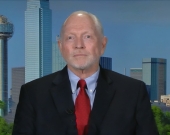Dr. Boaz Atzili to Gulan: Russian invasion of Ukraine is more a vestige of an old type of international relations

Dr. Boaz Atzili is a political scientist who researches and teaches international politics. His interest is in international security with an emphasis on the politics of borders and territoriality, deterrence of non-state actors and their host states, and the international aspects of state weakness. His regional focus is in the Middle East, but his research extends to Africa, Europe, and Latin America as well. Atzili teaches courses include "International Relation Theory," "Schools of Thought in International Relations," "Security and Insecurity in a Global World," "Dynamics of International (in)Security," "Weak States and War," and "Arab-Israeli relations." In an interview he answered our questions like the following:
Gulan -As an expert on international relations and international politics, how do you characterize the current state of affairs in the world giving the ongoing Russia-Ukraine war, and the rising escalation of tension between USA and China?
Dr. Boaz Atzili: As many have commented, the world is in a period of transition from more or less Western hegemony in the post Cold War time to something else. What is that new order (or disorder)? That is much less clear. I think that the Russian invasion of Ukraine is more a vestige of an old type of international relations. It’s about spheres of influence and frankly an imperial policy by a power that is materially strong but has limited space of growth (Russia). The rising tension between China and the US is much more dangerous for the world in the longer run. The two sides have much to loose from confrontation and much to gain from cooperation, but currently the movement seems to be in the opposite direction.
Gulan - You have focused in your research on the failed or failing state, so how do you define the failed state in terms of its causes and consequences?
Dr. Boaz Atzili: I looked at the strength (or weakness) of states along four axes: First, the strength and functionality of state institutions (e.g., taxation, policing and military, education system, courts, etc.), Second, the ability of the states to implement the policies decided on by the government. Third, the ability of the state to provide basic services to its population, and fourth, the degree of legitimacy of the state in the eyes of its own residence. Extreme low values on all of these are indicators of state failure (note that it is a failure of the state, not necessarily of everything within it). There are multiple cases and consequences of state failure. My work is focused on the role played by fixed international borders as one of those causes and at cross border violent conflict as one of the consequences. Other cases or consequences are more related to domestic politics.
Gulan -In your opinion, to what extent the inter and intra territorial disputes in the Middle Eastern states undermined the legitimacy and the effectiveness of these states?
Dr. Boaz Atzili: A great deal, and I would argue more the internal territorial disputes than the external. In the long run external territorial disputes could create pressures that could actually consolidate domestic legitimacy and strengthen the state. Domestic disagreements about the right territorial arrangements could be more damaging to the legitimacy of the states.
Gulan - How do you describe the ramifications of unravelling or the collapse of some states, like Lebanon on the security and stability of the entire region?
Dr. Boaz Atzili: Much of the turmoil of the Middle East in the last two decades was due to collapse of states- first Iraq (after US invasion) then Syria and Yemen. Lebanon might have less influence because of its small size but can still result in much trouble as regional powers (Israel, Iran, Syria) gets involved.
Gulan - What is your perspective about Israeli-Palestinian conflict, do you believe it is all doom and gloom, or eventually negotiated settlement will be in the realm of possibility?
Dr. Boaz Atzili: In the short term I don’t see much openings. No strong and brave leadership on either side, but most importantly on the Israeli side, because it is the stronger by far. In the really long term no conflict lasts forever, and this one will not either. But it may take a long time…
Gulan - In you view, to what extent the Abraham accords have been a major shift in the relations between Middle Eastern countries, and could it be a transformative development in the long term?
Dr. Boaz Atzili: I’m kind of in the middle on this one. On the one hand, these are peace agreements between states that never fought against each other, so they are not nearly as important as the Egypt-Israel or even the Jordan-Israel agreements were. Not to mention the Oslo Accords between Israel and the PLO. On the other hand they can make a difference if used wisely. It should be used not to isolate the Palestinians but to give Israel assurances of legitimacy in the region while pressuring it to restart dialogue and be willing to compromise with the Palestinians. It could be used, for example, to try and find a constructive solution to the Gaza strip issue.















